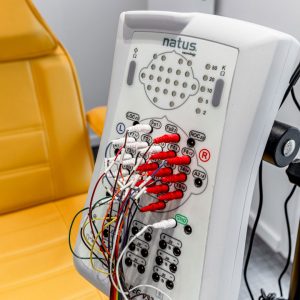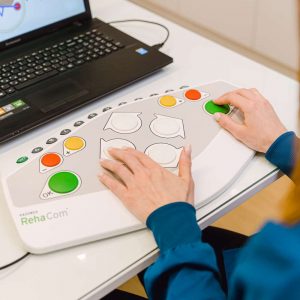Treatment
Multiple sclerosis
Αρχική / Services – Clinic Treatments / Treatment of Multiple Sclerosis
What is;
What you need to know about… Multiple Sclerosis?
- Multiple Sclerosis is one year neurological disease . It affects the nervous system in various ways.
- The disease belongs to autoimmune diseases because it occurs in people for unknown reasons the immune system follows the wrong commands and does not work properly . The immune system works normally to fight “invaders” such as germs and viruses, but in Multiple Sclerosis accidentally ‘attacks’ parts of our central nervous system, namely the brain and spinal cord (which connects the brain to parts of the body).
- Among other lesions, the sheath of the nerve fibers (which act as cables) is affected, ie the myelin. This results in messages between parts of the nervous system are delayed, or not transmitted at all .
Our nervous system controls all parts of the body and the way they work. For this reason in this condition it is possible to manifest many different types of symptoms.
Symptoms & Signs
When does one need to seek the help of a specialist?
When new symptoms appear in a person that affect the ability to function in his daily activities and have not been diagnosed, he should seek the help of a specialist.
It is important to get in touch with the Neurologist if you experience:
- sudden numbness e.g. on one side of the body, or on both feet
- difficulty walking
- persistent dizziness or instability
- abrupt or progressive change in vision, sense of double vision, or loss of vision in one eye
- speech problems
- pain or sensation of “current” passing through the back
A person who has already been diagnosed with the condition should contact their doctor immediately if they feel, among other things:
- new symptoms appear abruptly, have a long duration (more than one day), do not stop completely, or even affect its functionality. These may mean that the condition is activated, that is, that it is relapse (new or recurrent symptoms lasting at least 24 hours)
- the disease adversely affects human functions (motor, aesthetic, mental, mental, etc.) causing worsening problems
- the balance in the various areas of life (personal, professional, social) of themselves and their families to disturbed often to the point that their quality of life deteriorates
Diagnosis
multiple sclerosis
-
Obtaining a general medical history
history of multiple sclerosis (the most important part of the diagnosis process) -
Clinical examination
(complete physical and neurological examination) -
Auxiliary - outpatient examinations
such as general and more specific - immunological, virological - blood and urine tests, magnetic resonance imaging of the brain and spinal cord, neurophysiological examination of the optic and sensory nerve pathways (with a test called "induced potential") and brain sample for brain of specific markers of inflammation with Lumbar puncture . Especially the last examination, the lumbar puncture, is done in our Center easily and painlessly, without the need for hospitalization or any other additional measure. The examinee can immediately return to his usual activities -
Carrying out a neuropsychological test to control mental functions
if the first evaluation (which usually takes 20 minutes) shows some difficulty, a more detailed evaluation is done. These evaluations are repeated every 1-2 years in all people living with multiple sclerosis and are monitored at our Center. -
Completion of questionnaires
for the full clarification of the disease and the accompanying symptoms, as well as the aggravating factors (diet, sleep quality , physical activity, functions bladder and intestine, sexual operation, control of possible depletion and total load in quality of life ) -
Interview
with theclinical psychologist when necessary
Treatment
multiple sclerosis
- administration of drugs to treat the symptoms of multiple sclerosis (nosocomial drugs, injectable drugs, oral medications, pain medications, spasticity, anxiety, exhaustion, intravenous infusion of high-dose cortisone (with continuous cortisone) for three days (with cortisone) injection takes place in our Center or in the patient's home, lasts less than an hour and does not require hospitalization)
- special treatments, such as topical injections of botulinum toxin (Botox) into specific areas of the body to control spasticity
non-drug treatments
- preventive measures (eg lifestyle changes, diet, discontinuation
smoking, regular exercise) - consulting (eg for stress management, support of
interpersonal relationships, problem management at work,
family planning issues) - recommendation and guidance for appropriate physiotherapy
- guidance on the organization and implementation of appropriateof physics
exercise
- psychotherapy (special programs mental empowerment the
interventions cognitive rehabilitation , performing neuropsychological
trials – tests of mental functions, mental functions –
using computers or simpler written or oral
tests tailored to each patient)


